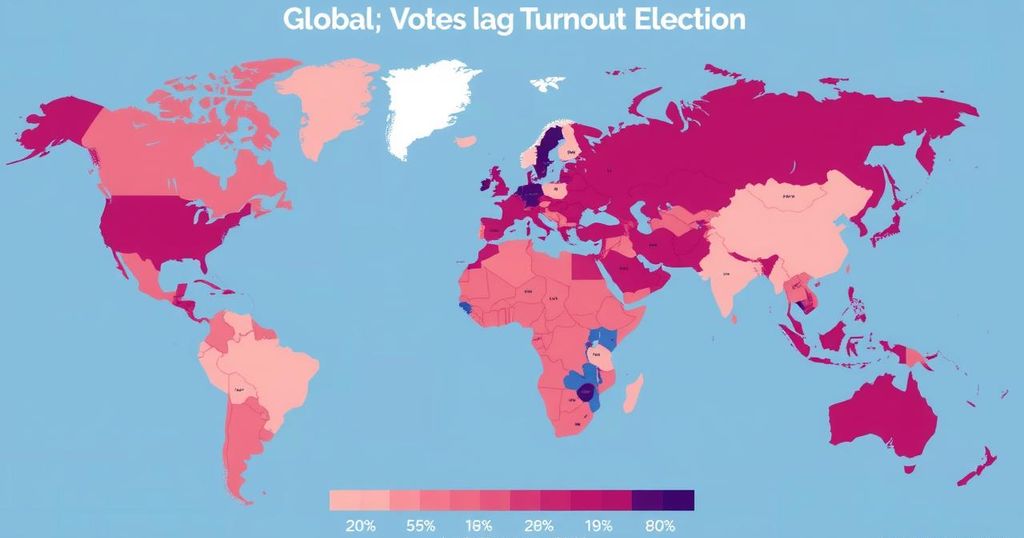In 2024, nearly half the global population participated in elections across over 60 countries, marking a historic milestone in democratic engagement. However, voter tendencies highlighted a preference for immediate self-interest over collective concerns, affecting global political dynamics. While some incumbents faced significant challenges, leaders in Russia exemplified non-democratic practices. The outcomes of these elections will have profound implications on international relations and governance.
The election year of 2024 witnessed an unprecedented global turnout, with over 60 nations selecting their leaders, representing nearly half of the global populace. This unprecedented democratic participation marked a historic evolution in governance practices. Despite this remarkable achievement, the outcomes raised concerns about the persistence of self-interest among voters, who frequently prioritized immediate economic concerns over collective well-being, fueling fears and greed.
In various industrialized nations, pressing issues such as economic instability overshadowed significant global challenges like climate change. For instance, Keir Starmer’s Labour Party triumphed in the United Kingdom partly due to public discontent with the economy, displacing the Conservative Party after 14 years. Similarly, in the United States, President Joe Biden faced criticism despite efforts to reduce inflation, leading voters to favor Donald Trump for change. This trend of voting based on personal financial concerns resulted in substantial shifts in leadership across many regions.
Countries like India and South Africa also experienced significant electoral changes, with established political parties losing ground to populist movements. Conversely, some leaders such as Bangladesh’s Sheikh Hasina were met with public dissent despite securing electoral victories. Notably, Donald Trump’s resurgence in American politics and French President Emmanuel Macron’s hasty elections provide critical insights into voters’ demands and the challenges facing traditional political structures.
However, not all elections reflected genuine democratic ideals. Vladimir Putin’s overwhelming victory in Russia exemplified this disconnect, where opposition figures faced perilous repercussions and media outlets remained under stringent control. As the global political landscape shifts, questions arise about the impact of domestic electoral choices on international relations, particularly concerning issues such as the ongoing conflict in Ukraine. Ultimately, these events underscore the necessity of continuous vigilance and commitment to democratic principles worldwide, revealing both the potential and pitfalls of global electoral engagement.
The article reviews the events of 2024, a year characterized by significant democratic participation worldwide, as voters in over 60 countries engaged in the electoral process. This involvement represents a notable shift in public political engagement, particularly in regions where democratic processes had previously faced restrictions. Amidst this electoral fervor, the article analyzes how voters’ preferences revealed a tendency to prioritize immediate economic concerns over larger existential issues, such as climate change, highlighting a disconnect that poses challenges to collective decision-making in governance. Furthermore, the article illustrates how the outcomes of these elections impacted global politics, particularly examining the consequences of populist movements and the stability of long-standing leaders.
In conclusion, the democratic engagements of 2024 marked a pivotal moment in global politics, revealing both the progress made in electoral participation and the ongoing challenges of self-interest among voters. The results showcased a voting populace primarily influenced by immediate economic situations. However, serious concerns remain regarding the integrity of democratic processes in some regions, notably in Russia. Going forward, the implications of these elections will shape international dynamics, particularly in light of burgeoning populist sentiments and the crucial need for a unified approach to global challenges. The year serves as a critical reminder of the complexities inherent in modern democracy and the necessity to uphold democratic ideals and integrity.
Original Source: www.cnn.com






